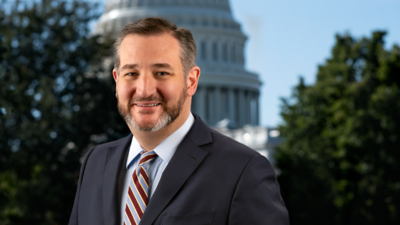It might be. It could be. But it shouldn't be.
So says Joe Kaiser, an Illinois Policy Institute writer who has taken issue with state lawmakers’ fair-weathered friendliness with the Chicago Cubs in the wake of the club's 2016 World Series win.
The legislature recently passed a resolution to designate March 8 Chicago World Series Champions Day, which Kaiser says is hypocritical considering the General Assembly’s historic combativeness with the Cubs and other sports franchises.
“This empty gesture shows the hypocrisy of politicians, who have a long, contentious history with sports franchises in the state,” Kaiser wrote. “It’s easy for politicians to celebrate the value sports franchises bring when it’s politically expedient for them, but actions over the years show Illinois politicians, especially in Chicago, care less when those franchises refuse to play ball with them. The Cubs are no exception.”
Specifically, Kaiser cited the long history of the Cubs' efforts to install lights at Wrigley Stadium, a struggle that lasted the better part of the 1980s. When the Tribune Co. purchased the Cubs in 1981, it attempted to install lights so that the team could host playoff games, which since the 1970s had been moved to night games to increase viewership.
The team needed permission from Chicago’s City Council, which Ed Vrdolyak, the council president and Cook County Democratic Party chairman, was loathe to give in light of the Tribune's editorial criticisms of him, Kaiser wrote.
Kaiser said that with Illinois House Speaker Mike Madigan as a Democratic ally, Vrdolyak was able to garner a 42-2 vote banning lights at Wrigley in 1983. When the Tribune tried to override the ban with an appeal to the General Assembly in 1985, Madigan ensured that the measure failed. It took three more years to get the lights, after Vrdolyak had changed parties and lost Madigan’s support.
“But even though the Cubs got their lights and have since been allowed to increase the number of night games the team hosts each season, the prevailing attitude of Chicago machine politics toward businesses – notably sports franchises – still exists today, taking different forms,” Kaiser wrote.
Kaiser pointed to the ongoing struggles of the Ricketts family, which now owns the Cubs. The family has proposed renovation measures for Wrigley and the surrounding neighborhood that it would carry out with its own funds, but according to Kaiser, the efforts have been blocked due to a longstanding feud with state aldermen, particularly Tom Tunney of the 44th Ward.
This strain was on display during last year’s World Series, when an ethics ruling prevented Chicago politicians from purchasing tickets at face value unless they performed a ceremonial function at the games.
The struggles are not unique to the Cubs, either, Kaiser wrote, although other teams have benefited from working with the Illinois Sports Facilities Authority (ISFA), which oversees tax-funded construction and renovation of professional sports teams’ stadiums.
Kaiser pointed out that the Chicago White Sox and Bulls, owned by politician-friendly Jerry Reinsdorf, have significantly benefited from the authority’s actions, quoting former ISFA Chairwoman Perri Irmer, who called the ISFA a “cash cow puppet for Reinsdorf” in a 2013 lawsuit.
“The Cubs overcame a lot to win their first World Series title since 1908,” Kaiser wrote. “But what isn’t discussed is the adversarial relationship the organization faced with politicians in Chicago and Springfield – something other sports franchises and businesses in the city and state know all too well.”
.jpg)




 Alerts Sign-up
Alerts Sign-up